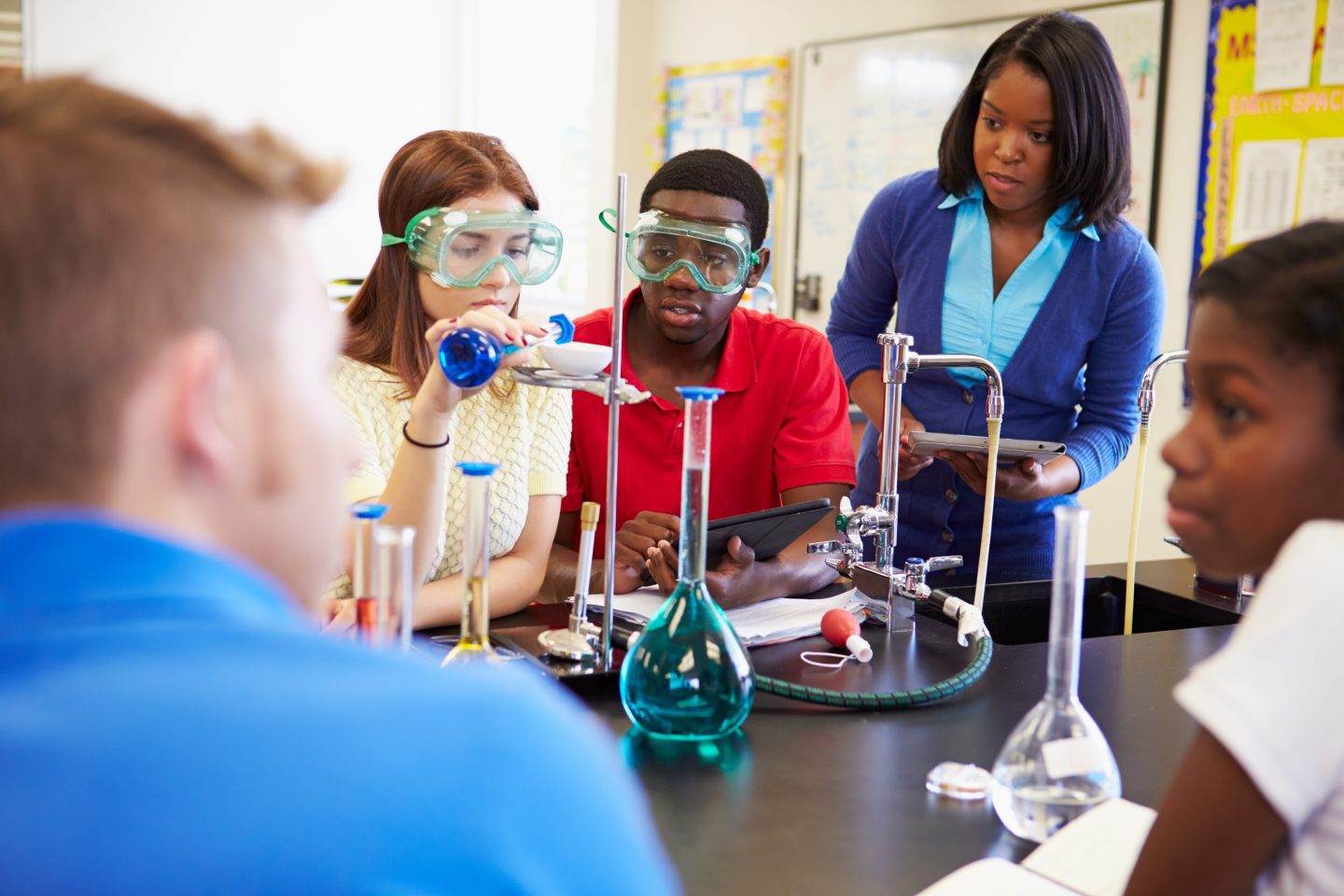
GCSE Chemistry Tutor
GCSE Chemistry tutor
Chemistry is a difficult GCSE for many students, with a mix of content and maths style questions. A good way to help navigate the way through GCSE Chemistry is to have the help of a GCSE Chemistry tutor.
Chemistry provides students with the groundwork to understand the composition, behaviour and properties of matter. It also studies the elements of the Earth and its atmosphere. Moreover, Chemistry contains a quantitative component and a broad range of topics from atomic structure to metal extraction to chemical analysis.

Exam boards
It’s important to identify which exam board your child’s school is following for GCSE Chemistry as the topics can vary.
The main exam boards for GCSE Chemistry are:
- Assessment and Qualifications Alliance (AQA)
- Oxford, Cambridge and RSA Examinations (OCR)
- Edexcel
- International General Certificate of Secondary Education (IGCSE)
Most boards have two papers with the option of taking the foundation level or higher level. Many of the key ideas in Chemistry are consistent across the exam boards (e.g. atomic structure, bonding, quantitative chemistry, and more.) Paper 1 explores the essential concepts of GCSE Chemistry and Paper 2 includes more complex ideas and applications.
At this moment in time, most exam boards include several compulsory practical experiments that students will normally complete at school. However, the IGCSE is the exception, with the option to sit a written paper that tests experimental understanding. This can suit students who are home-schooled without access to a well-equipped lab.
What is GCSE Chemistry all about?
GCSE Chemistry familiarises students with the elements that make up the world around us, exploring their properties, reactions, and applications. Therefore, students will observe and carry out several practical experiments throughout the course. They will learn how to predict, describe and explain what they see.
A GCSE Chemistry tutor will help learners to:
- Increase their understanding of the technological world
- Take an informed interest in scientific matters
- Recognise the usefulness (and limitations) of scientific method, and how to apply this to other disciplines and in everyday life
- Develop relevant attitudes, such as a concern for accuracy and precision, objectivity, integrity, enquiry, initiative and inventiveness
- Buid an interest in, and care for, the environment
- Developing an understanding of the scientific skills essential for both further study and everyday life
Your GCSE Chemistry tutor will help elevate your understanding of the subject and make sure you can obtain higher marks.
How to do well with the help of a GCSE Chemistry Tutor
Successful GCSE Chemistry students will have memorised the course content accurately. Therefore would develop a sufficient depth of understanding to apply this knowledge in unfamiliar contexts.
GCSE Chemistry exams commonly include reactions/applications that students will have never seen before. To succeed with these questions, it is important to feel confident with understanding the course content. A GCSE Chemistry tutor will make sure you have in-depth knowledge of the syllabus. This will therefore help to develop further understanding of chemical reactions and how to manipulate them. This will then form a solid grasp of the periodic table. This style of question is more common in Chemistry compared to a subject like Biology, which is more content-heavy and requires more memorisation.
To achieve a top grade, students will need to develop memorisation strategies and practice, practice, practice with past papers.
Memorisation strategies
There is no quick fix for the large amount of information that students are expected to memorise for GCSE Chemistry. However, a GCSE Chemistry tutor will help to develop a revision strategy that fits the individual’s style of learning. This will make revision fun and effective.

Using past papers/mark schemes
It is difficult to achieve a top grade in GCSE Chemistry without dedicating time to past papers and learning the exact wording that examiners expect. For example, even a student with a confident grasp on the electrolysis topic may fall short when asked to define an “electrode” if they haven’t seen this question before. Practise papers are a key part of a GCSE Chemistry tutors sessions in the run up to the exam. Therefore, by having a GCSE Chemistry tutor how goes through each individual question, students develop their technique of answering different styles of questions.
It is rare for an exam question to be completely unique. As a result, students who have revised with past papers will begin to spot patterns and recognise certain questions.
What is different for this year? Exam cycle 2022
We understand that for Chemistry GCSE there will be no changes or adaptations for the exam cycle 2022.
However, some exam boards are being lenient with their practical components. This is in recognition of the challenges involved in providing frequent hands-on practical experiences for all students. In some cases, students can study the required practical activities through the use of demonstrations and simulations, But only if it is not possible for them to carry out all of the practical activities.
Sitting public exams for the first time
Sitting important public exams comes with pressures that your child may never have experienced before. Although a small amount of pressure can help your child’s performance on the day, it is important they have some time to unwind. It is important for students to take some time to relax, taking time to do something social and something they love.
GCSE Chemistry tutor
The best way to support your child through their Chemistry GCSE is to ensure they have the tools and skills to succeed. An experienced GCSE Chemistry tutor can make all the difference. Our GCSE Chemistry tutors are experienced, qualified teachers, Heads of Department and Examiners who know the GCSE Chemistry syllabuses back to front. They will teach your child in the manner they learn best, explain the latest mark schemes, help them get to grips with tricky quadratic equations and dramatically improve their problem-solving skills.
Articles you may find useful: